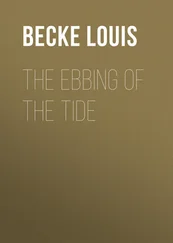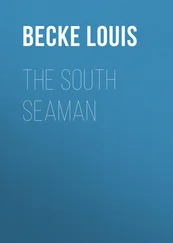Louis Becke - The Trader's Wife
Здесь есть возможность читать онлайн «Louis Becke - The Trader's Wife» — ознакомительный отрывок электронной книги совершенно бесплатно, а после прочтения отрывка купить полную версию. В некоторых случаях можно слушать аудио, скачать через торрент в формате fb2 и присутствует краткое содержание. Издательство: Иностранный паблик, Жанр: foreign_prose, literature_19, foreign_antique, на английском языке. Описание произведения, (предисловие) а так же отзывы посетителей доступны на портале библиотеки ЛибКат.
- Название:The Trader's Wife
- Автор:
- Издательство:Иностранный паблик
- Жанр:
- Год:неизвестен
- ISBN:нет данных
- Рейтинг книги:3 / 5. Голосов: 1
-
Избранное:Добавить в избранное
- Отзывы:
-
Ваша оценка:
- 60
- 1
- 2
- 3
- 4
- 5
The Trader's Wife: краткое содержание, описание и аннотация
Предлагаем к чтению аннотацию, описание, краткое содержание или предисловие (зависит от того, что написал сам автор книги «The Trader's Wife»). Если вы не нашли необходимую информацию о книге — напишите в комментариях, мы постараемся отыскать её.
The Trader's Wife — читать онлайн ознакомительный отрывок
Ниже представлен текст книги, разбитый по страницам. Система сохранения места последней прочитанной страницы, позволяет с удобством читать онлайн бесплатно книгу «The Trader's Wife», без необходимости каждый раз заново искать на чём Вы остановились. Поставьте закладку, и сможете в любой момент перейти на страницу, на которой закончили чтение.
Интервал:
Закладка:
Louis Becke
The Trader's Wife / 1901
CHAPTER I
Brabant’s wife was sitting on the shady verandah of her house on the hills overlooking Levuka harbour, and watching a large fore and aft schooner being towed in by two boats, for the wind had died away early in the morning and left the smooth sea to swelter and steam under a sky of brass.
The schooner was named the Maritana , and was owned and commanded by Mrs. Brabant’s husband, John Brabant, who at that moment was standing on the after-deck looking through his glasses at the house on the hill, and at the white-robed figure of his wife.
“Can you see Mrs. Brabant, sir?” asked the chief mate, a short, dark-faced man of about thirty years of age, as he came aft and stood beside his captain.
“Yes, I can see her quite plainly, Lester,” he replied, as he handed the glasses to his officer; “she is sitting on the verandah watching us.”
The mate took the glasses and directed them upon the house for a few moments. “Perhaps she will come off to us, sir?”
Brabant shook his head. “It is a terribly hot day, you see, Lester, and she can’t stand the sun at all. And then we shall be at anchor in another hour or so.”
“Just so, sir,” replied the mate politely. He did not like Mrs. Brabant, had never liked her from the very first day he saw her a year before, when Brabant had brought her down on board the Maritana in Auckland, and introduced her as his future wife. Why he did not like her he could not tell, and did not waste time in trying to analyse his feelings. He knew that his old friend and shipmate was passionately fond of his fair young wife, and was intensely proud of her beauty, and now, at the conclusion of a wearisome five months’ voyage among the sun-baked islands of the Equatorial Pacific, was returning home more in love with her than ever. Not that he ever talked of her effusively, even to Lester, tried and true comrade as he was, for was naturally a self-contained and somewhat reserved man, as one could tell by his deep-set, stern grey eyes, and square jaw and chin.
“Damn her!” muttered Lester to himself, as he stood on the topgallant foc’scle watching the two boats with their toiling crews of brown-skinned natives; “nearly five months since she last saw him, and there she sits calmly watching us as if we had only sailed yesterday. Afraid of the sun! She’s too selfish and too frightened of spoiling her pretty pink-and-white skin—that’s what it is.”
An hour later the boats came alongside, and then, as the chain rattled through the hawse-pipes, Brabant came on deck dressed in a suit of spotless white.
“Shall we see you this evening, Jim?” he asked, as he stood waiting to receive the Customs officer and doctor, whose boats were approaching.
“Thank you very much, sir, but I would rather stay on board this evening, as Dr. Bruce is sure to come into town some time to-day, as soon as he hears the Maritana is here, and I should not like to miss him.”
“Just as you please, Jim. But why not take a run on shore with him, and both of you come up for an hour or two after dinner?”
The mate nodded. “Yes, we could do that, I think; but at the same time, Mrs. Brabant won’t much care about visitors this evening, I’m afraid.”
“My wife will be only too delighted, Jim,” replied the captain in his grave manner; “you and Bruce are my oldest friends—that is quite enough for her.”
The port doctor and Customs officer came on board and warmly greeted the captain of the Maritana for, apart from his being one of the wealthiest traders in the South Seas, John Brabant was essentially a man who made friends—made them insensibly, and then his beautiful young wife was the acknowledged belle of the small European community in Fiji, and his house, when he returned from one of his trading voyages, was literally an open house, for every one—traders, storekeepers, cotton planters, naval men or merchant skippers—knew there was a welcome awaiting them in the big bungalow on the hillside at whatever time they called, day or night. Such hospitality was customary in those old Fijian days, when every cotton planter saw before him the shining portals of the City of Fortune inviting him to enter and be rich, and every trader and trading captain made money so easily that it was hard to spend it as quickly as it was made; and Manton’s Hotel on Levuka beach was filled night after night with crowds of hilarious and excited people, and the popping of the champagne corks went on from dusk till dawn of the tropic day, and men talked and drank and talked and drank again, and told each other of the lucky strokes they had made; and sun-tanned skippers from the wild and murderous Solomons and the fever-stricken New Hebrides spoke of the cargoes of “blackbirds” they had sold at two hundred and fifty dollars a head, and dashed down a handful of yellow sovereigns on Manton’s bar “for a drink all round.” And then, sometimes, a long snaky-looking brigantine, with the name Atlantic on her stern, and the Stars and Stripes flying from her gaff, would sail into the noisy little port nestling under the verdured hills of Ovalau Island, and a big man, with a black, flowing beard, and a deep but merry voice, would be rowed ashore by a crew of wild-eyed, brown-skinned Polynesians, and “‘Bully’ Hayes has come! ‘Bully’ Hayes has come!” would be cried from one end of Levuka to the other, as every one, white, black, and brown, ran to the beach to see the famous and much-maligned “pirate” land, with a smile on his handsome face, his pockets full of gold, and he himself ready for anything or everything—a liaison with some other man’s wife, a story of his last cruise, a fight “for love” with some recently discovered pugilist of local renown; a sentimental Spanish song to the strumming of his guitar; or the reading of the burial service according to the rites of either the Roman Catholic Church, or that of the Church of England, over the remains of some acquaintance or stranger who had succumbed to fever or a bullet, or Levuka whiskey. Brave, halcyon days were those, when men lived their lives quickly, and then disappeared or were ruined, or committed suicide, and were soon forgotten.
Brabant had gone ashore, and Lester and the second mate—a thin, sallow-faced Chileno named Diaz—were seated under the awning, smoking, and occasionally watching the progress of a small cutter which was about a mile distant, and under the influence of a light air which had sprung up, was heading towards the Maritana . She was owned by Dr. Bruce, a planter friend of Lester. His estate was some miles down the coast, and he had been an old shipmate of Lester’s ten years before, when Brabant was living in Samoa as manager of the American Plantation Company, and Lester had first made his acquaintance—an acquaintance which had resulted in a firm and lasting friendship. Brabant wanted an overseer—a man who understood the native language—and Lester, then a youth of twenty, and idling about Samoa, waiting a berth as second mate, had been sent to him by an old seafaring friend. For three years they had worked together, and then Brabant, having saved enough money, threw up his shore berth and bought the Maritana to resume his former vocation of trader, and took Lester with him as mate, and Diaz, who had also been employed on the plantation, as second mate. That was seven years ago, and the schooner, during that time, had traversed the Pacific from one end to the other over and over again. Sometimes Brabant would take his cargo to San Francisco, sometimes to Singapore, and at rare intervals to Auckland. During one of his ship’s visits to Fiji his chief mate found his old friend Bruce settled there as a planter, and Bruce had induced Brabant to make Fiji his head-quarters.
Читать дальшеИнтервал:
Закладка:
Похожие книги на «The Trader's Wife»
Представляем Вашему вниманию похожие книги на «The Trader's Wife» списком для выбора. Мы отобрали схожую по названию и смыслу литературу в надежде предоставить читателям больше вариантов отыскать новые, интересные, ещё непрочитанные произведения.
Обсуждение, отзывы о книге «The Trader's Wife» и просто собственные мнения читателей. Оставьте ваши комментарии, напишите, что Вы думаете о произведении, его смысле или главных героях. Укажите что конкретно понравилось, а что нет, и почему Вы так считаете.












